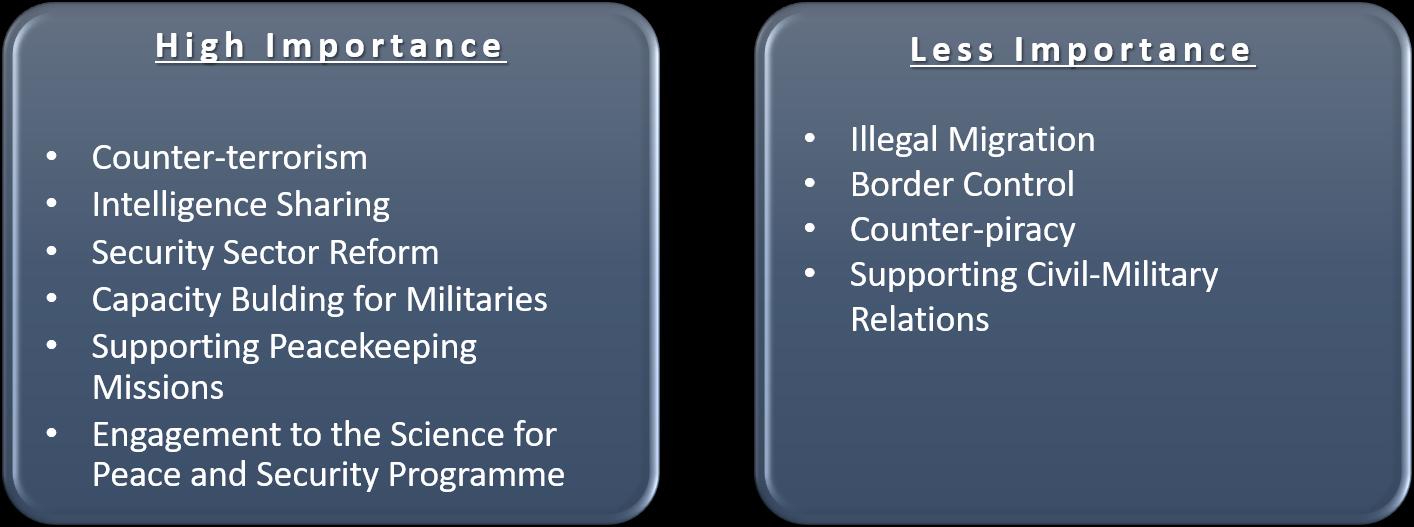OPEN PUBLICATIONS Figure 8: African Priorities
In a tangible way, based on African experts ’views garnered through the Delphi technique, the priorities for African countries in their relations with NATO should encompass counterterrorism, intelligence sharing, security sector reform, capacity building for militaries, supporting peace support operations/peacekeeping missions, and engagement with the Science for Peace and Security Program. Interestingly, illegal migration, border control, counter-piracy and supporting civil-military relations are not on the list of priorities for African government. (Figure 8)
4. Key Results / Conclusion As a starting point, this research sought to explore NATO’s present and possible future role in the South through gaining the trust and confidence of African countries. The research has examined what the South's demands are of NATO. The research is limited to African continent, and excluded the Middle East for analytical purposes, it should be remembered. The second starting point for the research was an awareness that the regions of Africa, as well as individual countries of those regions in Africa, naturally might have different foreign policy priorities; and third, that the Delphi technique, even with its limitations, allowed the researcher to benefit from the knowledge and experience of experts in Africa on African affairs. The findings of this research, therefore, should be treated as an educated assessment on the future of NATO-Africa relations. In conclusion, NATO has the potential to be accepted as a reliable partner for Africa, if it implements a well-determined Africa policy which is, in general, based on a win-win relationship. However, for the time being, NATO is not well known amongst the African population, and the base-line of perceptions features many challenges and flawed perceptions.
20





